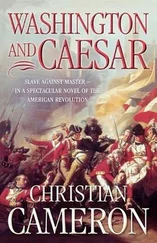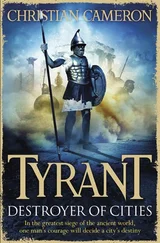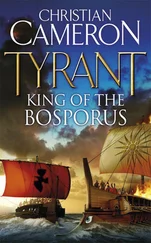Christian Cameron - Marathon - Freedom or Death
Здесь есть возможность читать онлайн «Christian Cameron - Marathon - Freedom or Death» весь текст электронной книги совершенно бесплатно (целиком полную версию без сокращений). В некоторых случаях можно слушать аудио, скачать через торрент в формате fb2 и присутствует краткое содержание. Жанр: Исторические приключения, на английском языке. Описание произведения, (предисловие) а так же отзывы посетителей доступны на портале библиотеки ЛибКат.
- Название:Marathon: Freedom or Death
- Автор:
- Жанр:
- Год:неизвестен
- ISBN:нет данных
- Рейтинг книги:3 / 5. Голосов: 1
-
Избранное:Добавить в избранное
- Отзывы:
-
Ваша оценка:
- 60
- 1
- 2
- 3
- 4
- 5
Marathon: Freedom or Death: краткое содержание, описание и аннотация
Предлагаем к чтению аннотацию, описание, краткое содержание или предисловие (зависит от того, что написал сам автор книги «Marathon: Freedom or Death»). Если вы не нашли необходимую информацию о книге — напишите в комментариях, мы постараемся отыскать её.
Marathon: Freedom or Death — читать онлайн бесплатно полную книгу (весь текст) целиком
Ниже представлен текст книги, разбитый по страницам. Система сохранения места последней прочитанной страницы, позволяет с удобством читать онлайн бесплатно книгу «Marathon: Freedom or Death», без необходимости каждый раз заново искать на чём Вы остановились. Поставьте закладку, и сможете в любой момент перейти на страницу, на которой закончили чтение.
Интервал:
Закладка:
HetairaLiterally a ‘female companion’. In ancient Athens, a hetaira was a courtesan, a highly skilled woman who provided sexual companionship as well as fashion, political advice and music.
HimationA very large piece of rich, often embroidered wool, worn as an outer garment by wealthy citizen women or as a sole garment by older men, especially those in authority.
HopliteA Greek upper-class warrior. Possession of a heavy spear, a helmet and an aspis (see above) and income above the marginal lowest free class were all required to serve as a hoplite . Although much is made of the ‘citizen soldier’ of ancient Greece, it would be fairer to compare hoplites to medieval knights than to Roman legionnaires or modern National Guardsmen. Poorer citizens did serve, and sometimes as hoplites or marines, but in general, the front ranks were the preserve of upper-class men who could afford the best training and the essential armour.
HoplitodromosThe hoplite race, or race in armour. Two stades with an aspis on your shoulder, a helmet and greaves in the early runs. I’ve run this race in armour. It is no picnic.
HoplomachiaA hoplite contest, or sparring match. Again, there is enormous debate as to when hoplomachia came into existence and how much training Greek hoplites received. One thing that they didn’t do is drill like modern soldiers — there’s no mention of it in all of Greek literature. However, they had highly evolved martial arts (see pankration ) and it is almost certain that hoplomachia was a term that referred to ‘the martial art of fighting when fully equipped as a hoplite ’.
HoplomachosA participant in hoplomachia .
HypaspistLiterally ‘under the shield’. A squire or military servant — by the time of Arimnestos, the hypaspist was usually a younger man of the same class as the hoplite .
KitharaA stringed instrument of some complexity, with a hollow body as a soundboard.
KlineA couch.
KopisThe heavy, back-curved sabre of the Greeks. Like a longer, heavier modern kukri or Gurkha knife.
KoreA maiden or daughter.
KylixA wide, shallow, handled bowl for drinking wine.
LogosLiterally ‘word’. In pre-Socratic Greek philosophy the word is everything — the power beyond the gods.
LongcheA six to seven foot throwing spear, also used for hunting. A hoplite might carry a pair of longchai , or a single, longer and heavier doru .
MachairaA heavy sword or long knife.
MaenadsThe ‘raving ones’ — ecstatic female followers of Dionysus.
MastosA woman’s breast. A mastos cup is shaped like a woman’s breast with a rattle in the nipple — so when you drink, you lick the nipple and the rattle shows that you emptied the cup. I’ll leave the rest to imagination. .
MedimnosA grain measure. Very roughly — 35 to 100 pounds of grain.
MegaronA style of building with a roofed porch.
NavarchAn admiral.
OikiaThe household — all the family and all the slaves, and sometimes the animals and the farmland itself.
OpsonWhatever spread, dip or accompaniment an ancient Greek had with bread.
PaisA child.
PalaestraThe exercise sands of the gymnasium.
PankrationThe military martial art of the ancient Greeks — an unarmed combat system that bears more than a passing resemblance to modern MMA techniques, with a series of carefully structured blows and domination holds that is, by modern standards, very advanced. Also the basis of the Greek sword and spear-based martial arts. Kicking, punching, wrestling, grappling, on the ground and standing, were all permitted.
PeplosA short over-fold of cloth that women could wear as a hood or to cover the breasts.
PhalanxThe full military potential of a town; the actual, formed body of men before a battle (all of the smaller groups formed together made a phalanx ). In this period, it would be a mistake to imagine a carefully drilled military machine.
PhylarchA file-leader — an officer commanding the four to sixteen men standing behind him in the phalanx .
PolemarchThe war leader.
PolisThe city. The basis of all Greek political thought and expression, the government that was held to be more important — a higher god — than any individual or even family. To this day, when we talk about politics, we’re talking about the ‘things of our city’.
PorneA prostitute.
PorpaxThe bronze or leather band that encloses the forearm on a Greek aspis .
PsiloiLight infantrymen — usually slaves or adolescent freemen who, in this period, were not organised and seldom had any weapon beyond some rocks to throw.
PyrrhicheThe ‘War Dance’. A line dance in armour done by all of the warriors, often very complex. There’s reason to believe that the Pyrrhiche was the method by which the young were trained in basic martial arts and by which ‘drill’ was inculcated.
PyxisA box, often circular, turned from wood or made of metal.
RhapsodeA master-poet, often a performer who told epic works like the Iliad from memory.
SatrapA Persian ruler of a province of the Persian Empire.
SkeuophorosLiterally a ‘shield carrier’, unlike the hypaspist , this is a slave or freed man who does camp work and carries the armour and baggage.
SparabaraThe large wicker shield of the Persian and Mede elite infantry. Also the name of those soldiers.
SpolasAnother name for a leather corslet , often used for the lion skin of Heracles.
StadeA measure of distance. An Athenian stade is about 185 metres.
StrategosIn Athens, the commander of one of the ten military tribes. Elsewhere, any senior Greek officer — sometimes the commanding general.
SynaspismosThe closest order that hoplites could form — so close that the shields overlap, hence ‘shield on shield’.
TaxisAny group but, in military terms, a company; I use it for 60 to 300 men.
ThetesThe lowest free class — citizens with limited rights.
ThoraxSee corslet .
ThugaterDaughter. Look at the word carefully and you’ll see the ‘daughter’ in it. .
TriakonterA small rowed galley of thirty oars.
TrierarchThe captain of a ship — sometimes just the owner or builder, sometimes the fighting captain.
ZoneA belt, often just rope or finely wrought cord, but could be a heavy bronze kidney belt for war.
General Note on Names and Personages
This series is set in the very dawn of the so-called Classical Era, often measured from the Battle of Marathon (490 BC). Some, if not most, of the famous names of this era are characters in this series — and that’s not happenstance. Athens of this period is as magical, in many ways, as Tolkien’s Gondor, and even the quickest list of artists, poets, and soldiers of this era reads like a ‘who’s who’ of western civilization. Nor is the author tossing them together by happenstance — these people were almost all aristocrats, men (and women) who knew each other well — and might be adversaries or friends in need. Names in bold are historical characters — yes, even Arimnestos — and you can get a glimpse into their lives by looking at Wikipedia or Britannia online. For more in-depth information, I recommend Plutarch and Herodotus, to whom I owe a great deal.
Читать дальшеИнтервал:
Закладка:
Похожие книги на «Marathon: Freedom or Death»
Представляем Вашему вниманию похожие книги на «Marathon: Freedom or Death» списком для выбора. Мы отобрали схожую по названию и смыслу литературу в надежде предоставить читателям больше вариантов отыскать новые, интересные, ещё непрочитанные произведения.
Обсуждение, отзывы о книге «Marathon: Freedom or Death» и просто собственные мнения читателей. Оставьте ваши комментарии, напишите, что Вы думаете о произведении, его смысле или главных героях. Укажите что конкретно понравилось, а что нет, и почему Вы так считаете.












